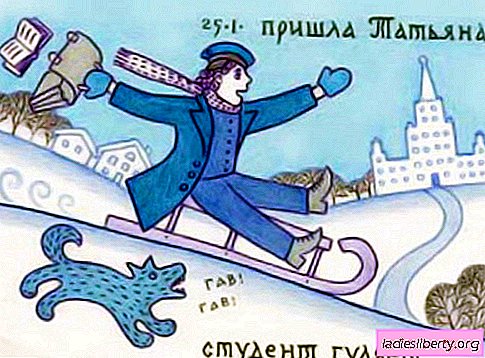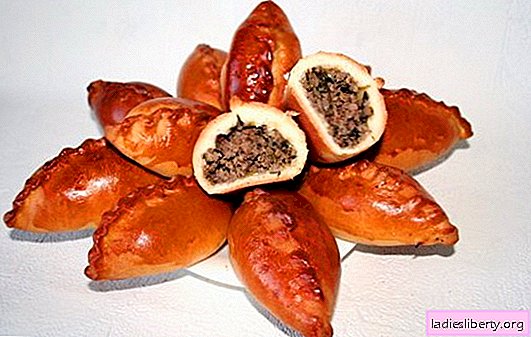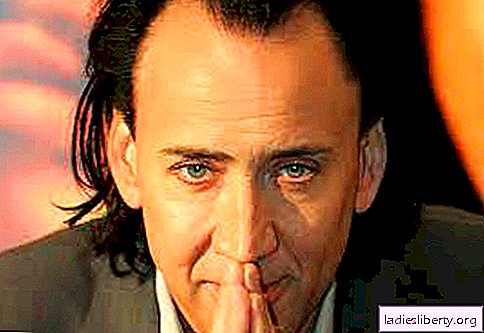
Holidays January 25
Naval Day of the Russian Navy
This holiday is celebrated on January 25, the day the naval service, the Russian Navy, was created. The need to prepare their own navigators arose at a time when Tsar Peter intended to build a Russian fleet. To train specialists in the field of navigation, a navigation school was founded in Moscow. By the decree of Peter of January 25, 1701, the day of the celebration of the navigator of the Russian fleet was founded. To the decree of Peter there were especially important additions forbidding navigators to visit drinking establishments and to go to deck during sea battles. Many prominent admirals began their naval career precisely in the rank of navigators, among them such famous military leaders as Gorshkov, Mikhailin, Mikhailovsky and others. In the history of outstanding geographical discoveries, navigators deserve equal fame along with admirals and ship captains. The specialty of the navigator is particularly complex and responsible, because the correct course of the ship depends on his professionalism and knowledge. When 2001 came, the navigational service in Russia celebrated its 300th anniversary. On this day, all navigators and their families celebrate a very joyful day for them.
Students Day (Tatyana's Day)
It is impossible to find a student in Russia who would not know about this holiday. All students with great pleasure celebrate this holiday, which was officially approved by the president in 2005. More than 200 years ago, it was this day that was marked by a decree in accordance with which Moscow University was established. This decree was issued by Elizabeth Petrovna. This day already had the status of a university day, only it was called differently. From ancient times it is believed that the patroness of students is St. Tatyana.
Even in ancient Greece, women who bore this name were considered "organizers." In the sixties of the last century, Tatyana’s day became an unofficial holiday for students. Coincidentally, student vacations began at this time, which for students has always been a very joyful event. Over time, some characteristic traditions appeared, among them there is a certain ritual of organizing solemn acts, during which awards are given and speeches are given. Initially, this day was celebrated only in Moscow, it was there that they held magnificent festivities and organized all kinds of entertainment. Witnesses of this claim that this day was a really important event for all residents of the capital. First, a short official ceremony was held at Moscow University, after which a fun festivities began, in which almost all of Moscow took part. Closer to the 19th century, staff at all universities and students were happy to celebrate the end of the next school year, marked by various celebrations. This holiday gathered many guests who presented and received awards and delivered solemn speeches. In those days, the University Church celebrated the Foundation Day of Moscow University. This lasted until Nicholas I issued his Decree, in it he combined the date of the celebration and the date when the act of establishing the university was signed. Thus, the monarch with his gracious will created a fun holiday called Students' Day. This holiday has existed for a long time, and many traditions of this day are still popular. As before, and in our time, on this day everywhere they organize noisy walks.
Robert Burns Birthday
The birthday of the poet Robert Burns is considered a national holiday and is celebrated in Scotland, in the birthplace of Robert. The inhabitants of Scotland are proud of such a famous compatriot and respectfully honor his memory. This holiday is held not only in Scotland, but in almost all areas of Britain. Robert Burns's name day is usually celebrated in the form of a dinner called Burns Supper, they conduct it according to a special scenario. First, it is customary to conduct a small sketch, read poetry, sing songs, and dance folk dances. In Scotland, Burns is revered as a symbol of this nation, and therefore the poet’s name day is considered one of the country's favorite holidays, and is celebrated with a wide leg and fun. On this holiday, the people of Scotland take out national costumes from their closets. Kilt and plaid (fabric pattern), it is customary to transmit only along the family line; it determines membership in a particular clan. This affiliation today is an important characteristic of the Scottish family. Burns' birthday festivities consist only of national Scottish cuisine. Hagis was traditionally prepared from a finely chopped ram liver, oatmeal and spices were added. With a hagis, boiled potatoes and turnips were always served on a rich festive table. Dessert on this day, knowledgeable housewives cook kranhen, this is whipped cream with raspberries and toasted oatmeal. And, of course, the famous Scotch whiskey flaunted on the table that day. This famous poet was born into a farming family. While at school, Robert began to write down his first poems in a notebook. The guy wrote only about what he experienced and felt joy and sorrow on himself, love for the female sex, devotion to the motherland. In his youth, Burns lived in need and in hard work. He had a rather stormy personal life. He wrote poems on love topics, about the freedom of Scottish nature and history. His poetry captivates with its peculiar simplicity, a certain playfulness and amazing musicality. Fans extol Burns as a romantic poet; at the same time, his poems and ballads clearly reflect the prudence of the peasants, among whom the poet grew up.
Nowadays, in every Scottish home, Burns' books are on the shelves and his portrait is hanging.
January 25 in the folk calendar
Tatyana's Day, Babi Kut
On this day, the Orthodox Church commemorates the holy martyr Tatyana Rimsky, who was tortured for her faith, this happened when Emperor Alexander ruled in the third century. In ancient times, this holiday was called Babi Kut. So called the woman’s corner, this is a place near the stove where household items were placed, and there the hostess spent a lot of time bustling around the house. This place was also called the sun. The eldest housewife in the house was called "Bolshuha", on this holiday she baked a loaf, which symbolized the sun. It was the shepherd who had to get the loaf from the stove, and when it cools down it should be divided into all members of the family. Be sure every member of the family had to eat at least a small piece. According to tradition, on this holiday it was necessary to go for the water collected from the river, and also it was necessary to knock out all the dust from the genital tract. It was customary to say among the people: "Tatyana bakes bread, and beats paths, and leads round dances." On this day there was another popular belief, which was naturally associated with housekeeping. The peasants believed that the girl who was born on Tatyana's day would be an excellent hostess in the future. Any man will be happy with such a wife, but everyone dreams of finding their fate. That is why on this holiday all the girls who dreamed of getting married, made a broom, and tried to leave the coveted groom in the house, this had to be done so that the mother would not find the groom. However, experienced women of the family certainly didn’t know about this custom and let on the threshold not every girl. There were various signs related to the weather for this day. When it was snowing on Tatyana, it was believed that the summer would be very rainy, and a warm blizzard predicted drought and poor harvest. But when the sky was clear and there was frost in the yard - people were waiting for a rich harvest.
Historical events of January 25
January 25, 1755 foundation day of Moscow State University
The founder of Moscow University is Mikhail Lomonosov, after whom he was named after Moscow State University. The project of academician Lomonosov, at the initial stage, involved the creation of three faculties: philosophical, medical and legal. Moreover, the Faculty of Philosophy was the initial stage of training. Each student who entered the Moscow State University was obliged to first study at the Faculty of Philosophy, and then choose the faculty according to his desire and abilities. At that time, teaching in higher educational institutions was conducted in two, and sometimes in three languages: in Russian and Latin, it was compulsory, if desired, the student could additionally study French and German. The date of the official creation of the university in Moscow is considered to be January 25, 1755, on that very day the Empress Elizaveta Petrovna signed a decree establishing the Moscow State University. The day of approval of the decree fell on the holy day of St. Tatiana, since then students have celebrated "Tatyana's Day" as their holiday. Very quickly, Moscow University became a center of attraction and dissemination of knowledge and scientific discoveries. In those days, at the lectures of associate professors and professors, not only students could attend, but also ordinary citizens who have a thirst for knowledge. In 1756, the university opened its own printing house and bookstore. Soon, a university library was opened at Moscow State University, which for a long time served not only as an educational reading room, but also as a public one. Moscow State University released a galaxy of the greatest scientists from its walls, made a huge contribution to the development of science and technology.
January 25, 1831 detronization of Nicholas I
On January 25, 1831, the Polish Sejm approved the manifesto on the detronization of Russian Emperor Nicholas I. The reason for this impudent decision was the uprising that took place in Poland in 1830. The rebellious people demanded from the puppet Polish government, the restoration of state independence of Poland. The decision of the Polish Sejm formally deprived the right of the Russian emperor to the throne of the Kingdom of Poland. The uprising was preceded by attempts by the Polish leadership, peacefully agreeing with Russia on the expansion of the rights and autonomy of the Polish kingdom. However, the Russian side did not want to hear about any autonomy for Poland, and considered these lands as a provincial unit. Despite the moderate and even somewhere peaceful character of the adopted manifesto, the Russian emperor was very angry with similar separatist tricks of the Polish gentry. And this threatened Poland with an invasion of the regular Russian army within its borders. The Poles believed that the decision of the Sejm deprived Nicholas I of the right to use the title of Polish monarch. Thus, the Poles wanted to emphasize that Russian rule in Poland is not legal and can be considered as occupation. The Russian side did not recognize the document and rejected all the claims of the Poles for any kind of autonomy, and moreover, independence. Soon, the Russian imperial guard troops entered Poland and crushed the Polish uprising in the most brutal way. The Sejm was liquidated, and its decisions were canceled, in exchange a special code of laws was issued for the arrangement of the Polish province.
January 25, 2010 the crash of a Boeing 737 near Beirut
A regular flight on the route Lebanon (Beirut) - Addis Ababa (Ethiopia) ended in disaster on January 25, 2010. The tragedy occurred a few minutes after the plane took off from Beirut airport. The ship fell into the Mediterranean Sea a few kilometers from the coast. The Boeing 737-8AS crashed. On the eve of the flight, the aircraft passed a full technical check, and no malfunctions were detected in the ship. When the liner crashed, 90 people died, including crew members, more than half of the passengers were Lebanese citizens. According to experts, the accident happened due to unfavorable weather conditions and the inexperience of pilots when working in such conditions. The plane took off at the time of a severe sea storm. According to eyewitnesses who were on the coast, the liner caught fire in the air, and then fell into the sea. The rescue operation began on the morning of January 25th and was carried out by the Lebanese army. The military used Sikorsky combat helicopters, in addition, special UN support units arrived to help the Lebanese side. Searches were intensively conducted during the day; only no more than twenty-four bodies of the dead were found. Some Lebanese media reported the terrorist attacks that caused the disaster, but the Lebanese authorities categorically rejected the terrorist attack. There were other versions of the disaster, as some Lebanese and Ethiopian media reported that the American company sold Lebanon an obsolete and decommissioned Boeing 737, which caused a technological disaster.
January 25, 1918 Bolsheviks adopted a declaration on the rights of the working people
One of the first and most important documents adopted by the Bolsheviks, historians call the decree on the rights and liberties of the working people. Many scholars believe this decree was a Bolshevik populist act aimed at gaining popularity among the working and peasant classes. The declaration was adopted on January 25, 1918, and in fact became a kind of guidebook for the new Soviet state. The document consisted of four sections: the first established the power of workers and peasants in the Soviet state, the second section provided for the federal structure of the new state formation, the third and fourth sections determined the destruction of the class division of society and the elimination of private ownership of land and means of production. In addition, it announced the nationalization of the banking system, the introduction of compulsory labor service and the formation of the Red Army. The decree was also supplemented by a large number of subsections and additions. In foreign policy, the Bolsheviks intended to fight for world peace and respect for the sovereignty of all peoples striving for a socialist future. Also, the Communists declared a complete breakdown in relations with bourgeois-capitalist states. All loans and credits taken by the tsarist and interim governments, the Bolsheviks annulled and did not intend to return them. The following important decisions of the declaration were: the formation of the Council of People's Commissars and the granting of independence to Finland. As historical reality has shown, the declaration adopted by the Bolsheviks was only partially implemented in the future, its basic principles were never implemented by the Bolsheviks.
January 25, 1949 first time Emmy Television Award
Emmy is an American television award, a unique analogue and an alternative to the Academy Award. The first prize was awarded on January 25, 1949, at the Hollywood Sports Club. The name of the award comes from the technical term "immy", the so-called first cathode tube used in television devices. The statuette "Emmy" was made in the form of a woman with wings, who holds in her hands an "atom" which in this case symbolizes television as the greatest scientific achievement, and the wings are symbols of television art. The editorial staff of the Emmy Award has over 400 nominations. The main ones are: the best drama film or series, the best comedy film or series, the best short film or series, the best actor or actress of the film or series. In the USA there is a tradition of presenting the so-called 6th day and evening Emmy Awards. By tradition, the prize is always awarded in November.The prize is prepared and organized by American television academies: Academy of Television Arts & Sciences, National Academy of Television Arts & Sciences, National Academy of Television Arts & Sciences. In our time, the Emmy Award has not lost its relevance, however, it cannot compete with the outstanding and legendary Oscar. In the cinema community it is believed that receiving an Emmy Award is a direct way to win an Oscar.
Born on January 25
Vladimir Vysotsky (1938-1980), an outstanding Soviet poet, singer, actor
Vladimir Semenovich was born on January 25, 1938 in Moscow. During the war, Vysotsky’s family broke up, his father went to another woman, but Volodya’s mother did not get confused and did not fall into despair and soon remarried. However, Volodya did not accept his stepfather, and asked his mother to let him live with his father. In 1955, Volodya entered the Moscow Engineering Institute, but, not having studied two courses, left the university. Unexpectedly for himself, he manages to go to school at the Moscow Art Theater. In 1959, Vladimir starred in a cameo role in the film "Peers." In the early 60s, he began to speak at amateur evenings, with his songs. In the future, Vysotsky played in more than thirty brilliant roles. Films in which Vysotsky starred were included in the golden fund of Soviet cinema. The most famous role of Vysotsky was the role of Zheglov in the film "The meeting place cannot be changed." The actor’s permanent place of work was the Taganka Theater, thanks to Vysotsky’s participation in the theater’s productions, Taganka enjoyed special love and popularity among the audience. Musical and poetic work of Vysotsky, surpassed his acting career. He created more than seven hundred songs, his songs were so popular that people specially purchased tape devices for their sake. Vysotsky was an incredibly energetic and sincere person, these qualities were conveyed to the viewer and did not leave anyone indifferent to his work. The subject and genre of his songs belonged to the chanson, they reflected the real life of an ordinary person. Vysotsky with all his essence did not perceive socialist reality and therefore often had problems with power. But despite all kinds of oppression, the people loved and loves Vysotsky and will always remember and honor him.
Joseph Louis Lagrange (1736-1813), French mechanic and mathematician
Born on January 25, 1736 in Turin. Joseph's parents wanted their son to become a lawyer. The father helped his son to enter the University of Turin, at the Faculty of Law, but the young man all day long was engaged in physical and mathematical sciences. Gifted with a divine gift for mathematics, Joseph, at the age of nineteen, became a professor of geometry. In 1755, Joseph sent Euler his outstanding work on isoperimetric calculi, which subsequently formed the basis of variational mathematics. In 1756, on the recommendation of Euler, Lagrange became a member of the Academy of Sciences in Berlin. In 1764, the French Academy of Sciences announced a competition to solve the problem of the movement of the moon around the earth. Lagrange developed the theory of the libration of the moon, which was recognized as the most correct. In 1766, the scientist develops a practical theory of motion and satellites around Jupiter. For all his discoveries, an outstanding mathematician received many prizes and awards. In 1766 he was invited to Germany to head the National Academy of Sciences. At the Berlin Academy, Lagrange made a number of discoveries in algebra, namely in number theory, and systematized differential equations. At the Berlin Academy, Lagrange, published his outstanding work, "Analytical Mechanics." This work became the most outstanding in all the scientific activities of the great mathematician. The works, ideas and discoveries of Lagrange made a huge contribution to the development of mathematics, physics and mechanics. His scientific publications and open laws are now compulsory for study in any educational institution.
Anna Breton (1477-1514), Queen of France
Anna was born on January 25, 1477 in Nantes, in the family of the rulers of the Duchy of Brittany, Francis II and Margarita Foix. Anna was the wife of two French kings: Charles VIII and Louis XII. Anna was, the most beloved people, the ruler of Brittany, and for her time she was also extremely rich. As ruler of Brittany, she did everything to prevent France from swallowing the duchy. With the power of her mind and arms, she twice married French kings and led an independent, from weak monarchs, policy. Anna was an educated and wise woman, and in political games and intrigues she had no equal. Most of the time, Anna ruled her country, she did everything so that Brittany would remain an independent country. While the duchess and queen, her duchy was alive, remained a strong and independent state. After her sudden death, Brittany did not long remain a sovereign duchy and in 1547 was annexed by the French kingdom. Contemporaries describe Anna as a woman of short stature, with dark hair, had a birth defect, one leg is shorter than the other, and therefore wore one high-heeled shoe. The duchess and queen died in January 1514 in her family castle. Buried with all honors as the Queen of France.
Vyacheslav Dobrynin (1946 ...), singer, composer, people's artist of the Russian Federation
Dobrynin was born on January 25, 1946 in the Ryazan Region. His parents met at the front. In childhood, Slavik showed the ability to music, successfully played the harmonica. At the age of seven, he went to study once in 2 schools, in primary and musical, having tried many instruments, Slava stopped at the button accordion. In 1974, the studio "Melody" released a record with the song Dobrynin "I love you." She became the debut of Vyacheslav as a musician and composer. Dobrynin wrote about a thousand songs, among them hundreds of hits and hits. Dobrynin’s songs are still sung by the people and will sing in the distant future. He performed his songs and works personally, as well as as part of ensembles. For a long time he successfully collaborated with Anna German, Valery Obodzinsky and Lev Leshchenko. Participated in pop bands: "Funny Guys" and "Gems". In 1990, Dobrynin founded his own group - "Dr. Schlyager." It is known that in 1996, Dobrynin was awarded the title of People's Artist of the Russian Federation. The composer was awarded the prestigious Ovation Prize three times. Throughout his life he received many prizes and awards. In 1998, on the famous square of stars, a plate was laid with the name of a national artist and composer.
Ilya Prigozhin (1917-2003), Belgian physicist and chemist of Russian origin
Ilya Romanovich was born on January 25, 1917 in Moscow in the family of an engineer. In 1921, the Prigozhin family left Russia and settled to live in Germany, but in 1929, the family moved again, but now to Belgium. After graduating from school in Brussels, Ilya entered the University of Brussels. After his graduation, in 1942, Ilya Romanovich remains to work at the university. In 1945, he defended his doctoral dissertation, and in 1947 became a professor at Brussels University. In the early 1950s, Prigozhin was interested in thermodynamics, especially in the field of nonequilibrium open systems. With his research, Prigogine made an invaluable contribution to the phenomenological theory of non-lapel processes in the thermodynamics of nonlinearity. In 1947, Prigogine introduced the concept of the generation of entropy and its flow, developed the formulation of the second law of thermodynamics, and introduced the principle of local equilibria. The theorem discovered by the scientist is named after him, which states: "In a stationary state, the rate of the process of entropy in thermodynamics is minimal." The scientist also discovered the theory of dissipative constructions. Prigozhin's discoveries found their application in chemistry, biology, and physics. In 1977, Prigozhin was awarded the Nobel Prize in Chemistry. An outstanding scientist lived in Brussels until the end of his days.
Name day 25 january
Tatyana, Ilya, Peter, Savely











